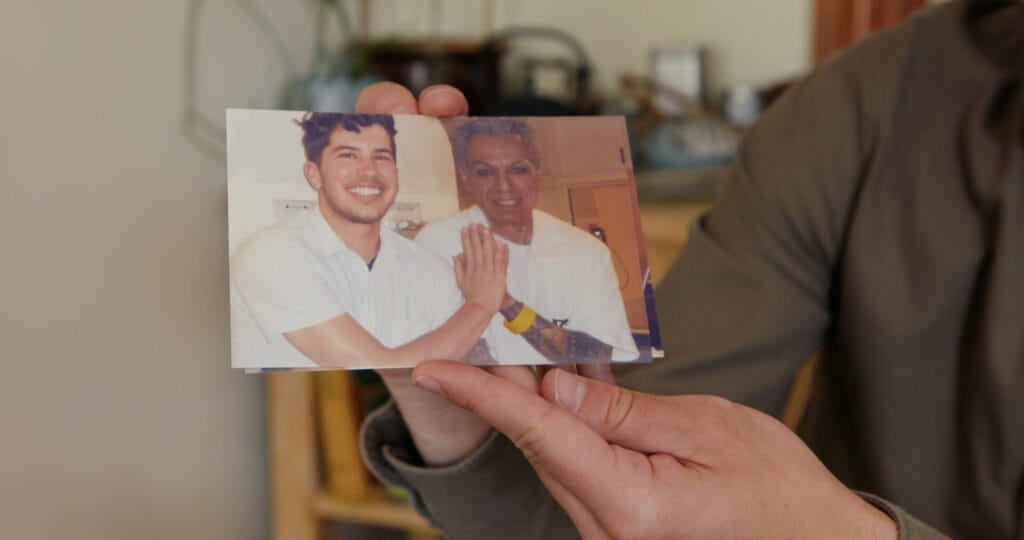Take a look at Jamie Diaz’s art and what you find are the small details. The color pencil shadings, and the watercolor paint strokes all morphed into a story of queer and trans identity.
Yet until last week, Jamie Diaz had spent almost three decades incarcerated in a men’s prison in Texas.
As an incarcerated trans person, there were many times Jamie feared for her safety.
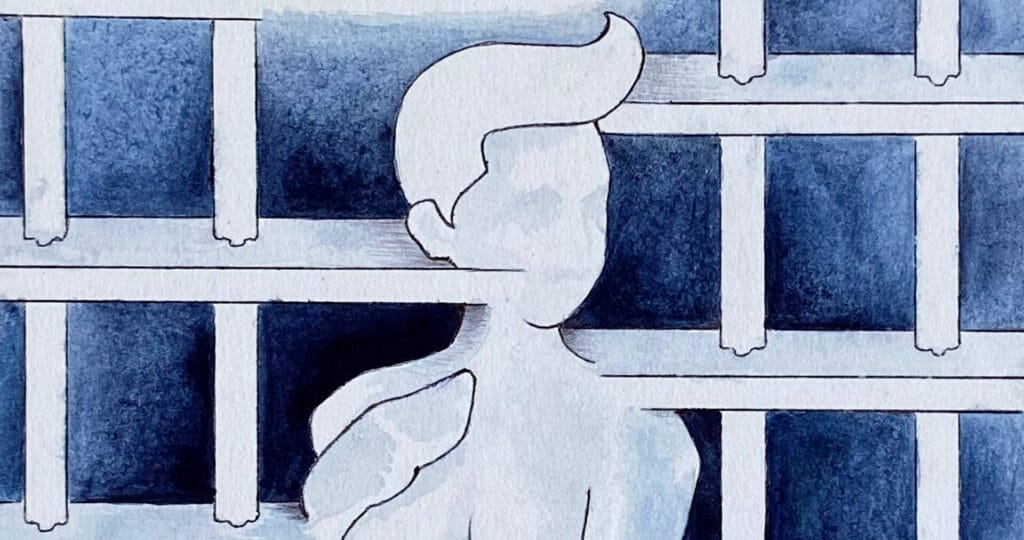 She was harassed and even disciplined for styling her hair or presenting herself more femininely. For girls like her, this was Jamie’s reality.
She was harassed and even disciplined for styling her hair or presenting herself more femininely. For girls like her, this was Jamie’s reality.
So she found an outlet to showcase her struggles, her identity, her love and her pride through her art, through the color pencil shadings and watercolor paint strokes through brushes made of human hair. And it was through her art, that she found connection outside the prison bars.
A Friendship Documented
Jamie’s journey is documented in Love Jamie, part of PBS’ American Masters web series documenting artists across the United States who overcome challenges to showcase their art.
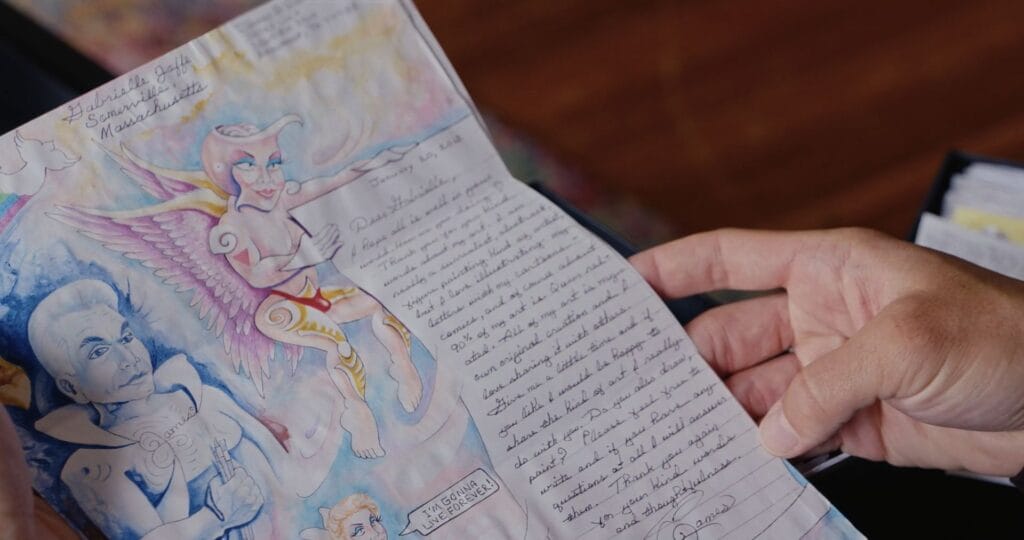
In 2013, through a volunteer effort supporting LGBTQ people who are incarcerated, Jamie began writing to Gabriel Joffe. Gabriel, who is also trans, said Jamie’s letters stuck out to them. Fully illustrated through watercolors, even the lettering flowing in cursive, Gabriel immediately connected to Jamie’s messages and responded to her. From there, through letters, phone calls and lived queer experiences, a friendship was born.
In the short film, reflective phone conversations between friends play over paintings of flowers, small unworldly-like creatures, rainbows and self-portraits. The film’s director, Karla Murthy, said she wanted to use the short film to show Jamie’s art up close and personal.
“My introduction to Jamie was first through her art,” Murthy said in an interview with GLAAD. “I was blown away by the quality, the detail, the color and that was something we really wanted to show in the film.”
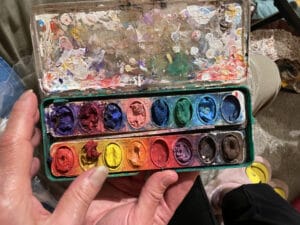
Jamie’s art serves as a visual throughout the film as we hear her candid conversations with Gabirle. Throughout the film, she confides in Gabriel about her upbringing, coming out to her mom and her regrets.
“I think I wasted a lot of time,” she confesses to Gabriel in one call. “But I’m happy you’re in my life. If you weren’t in my life, none of this would matter.”
Both Jamie and Gabriel also speak about each other’s gender identity journeys. In letters, Jamie writes to Gabriel about her transition, celebrating that despite her senior age, her hormone treatment is working.
“I’m even to starting to tell people I’m all woman,” she writes to Gabriel. “I even believe it.”
“I Almost Feel Free”
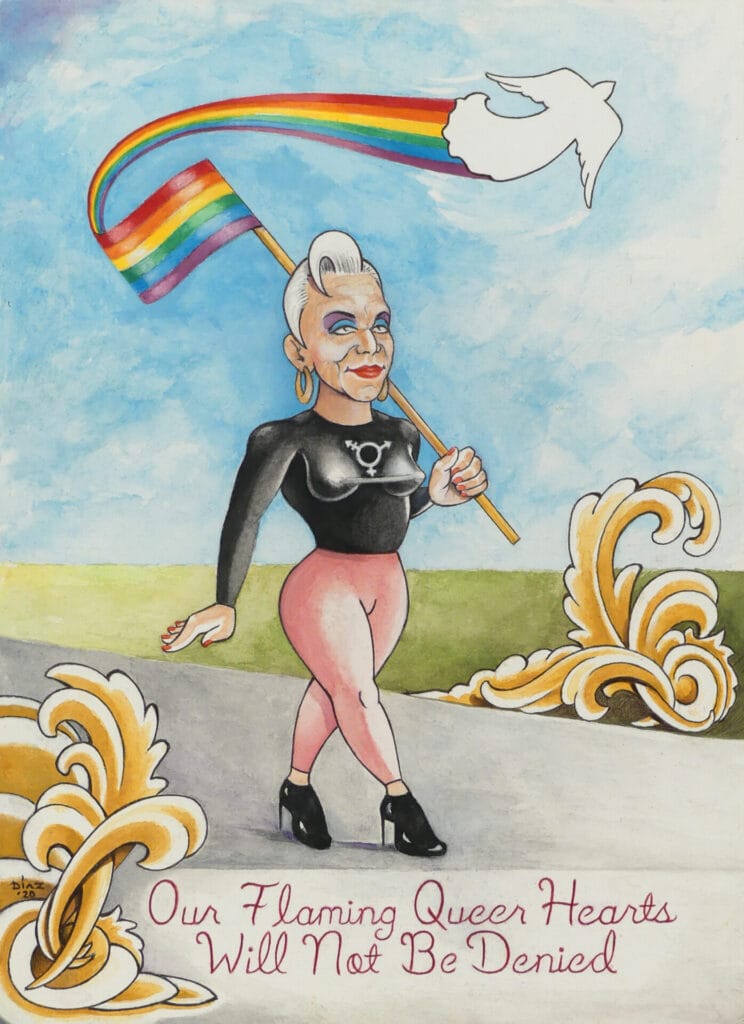
As their relationship continued to blossom, Jamie shared more of her art with Gabriel, a colorful and elaborate display of the queer experience. Through an online catalog created by Gabriel, New York gallery owner Daniel Cooney discovered Jamie’s creations.
Through their own correspondence, Jamie and Daniel shared stories of their journeys in sobriety and love of art.
Jamie Diaz’s Even Flowers Bleed exhibition opened
in October 2022 at Daniel’s New York City studio. At the center of a gallery stands a self-portrait of Jamie, standing high, open and proud, proudly waving the colors of the rainbow.
In two rooms, Jamie’s creations filled the walls. Guests admired her creations and her use of art from the walls of incarceration. A texting option was even available for guests who wished to send Jamie a note.
Though she wasn’t there, Jamie spoke with Gabriel during the gallery’s opening. She almost felt free, she emotionally relayed to Gabriel. Almost.
Tomorrow is Just the Beginning
Jamie was released from prison on May 31.
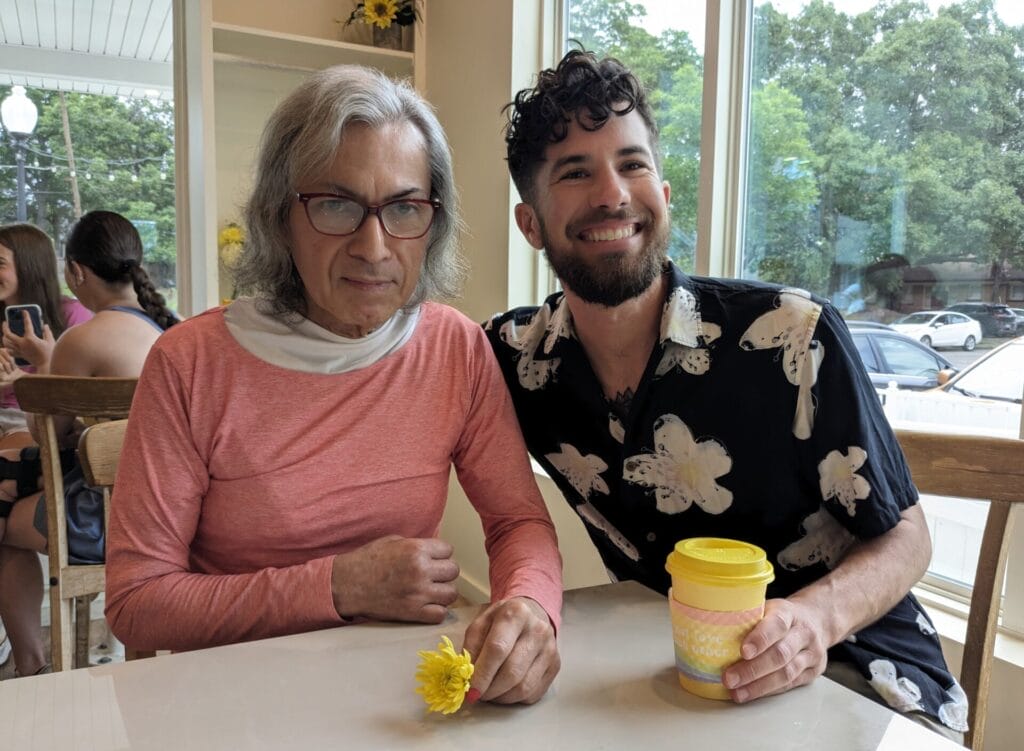
After her release, she celebrated her first Pride weekend in Dallas, shopping in the city’s Oak Lawn gay district, attending the city’s Pride festivities and even getting her makeup done.
Despite recent challenges, including the obstacles formerly incarcerated people face when released, Jamie’s just getting started.
“Tomorrow is just the beginning,” Gabriel said. “There’s so much more to come from Jamie.”
As for her art beautifully presented in the film, Jamie hopes people gain understanding and love from the story she is telling. That they understand what it means to be queer, trans and yes, incarcerated. There are so many stories untold in the prison system and through her passion and work, Jamie’s story is part of our own lives now.
“You know what I want people to feel?” Jamie says to Gabriel in one scene. “I want them to know that we’re good people.”
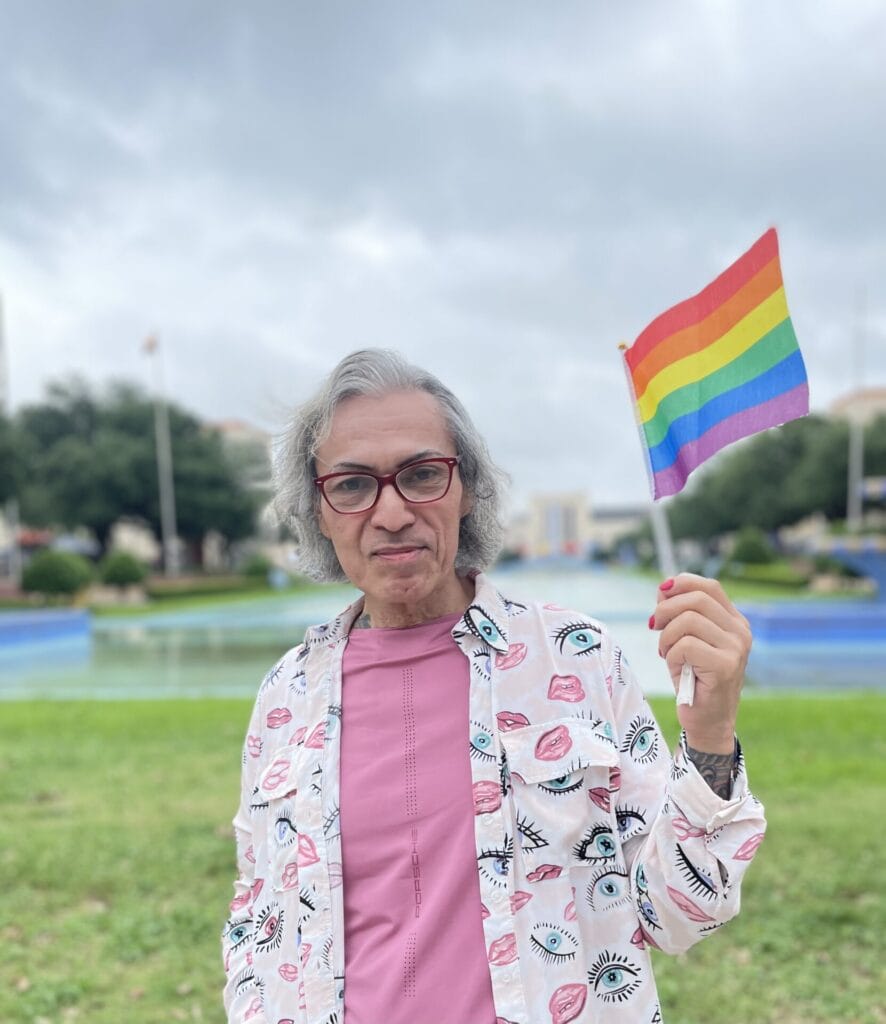
Love, Jamie is available now on PBS’ American Masters website and can also be viewed below.

